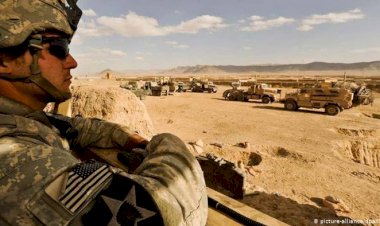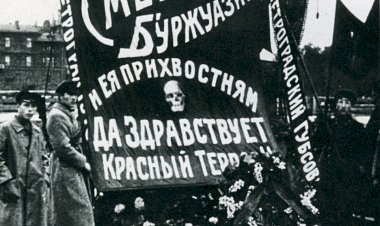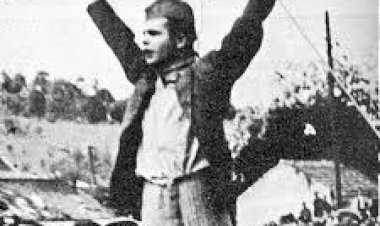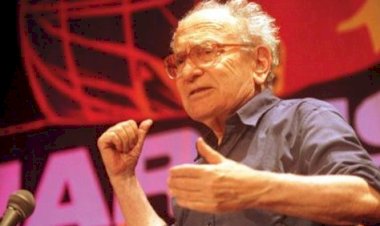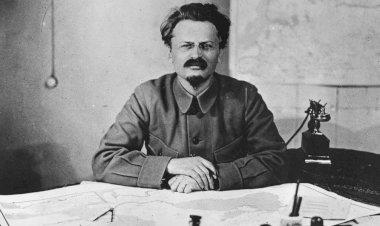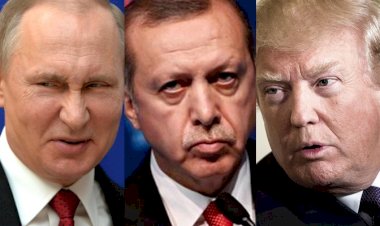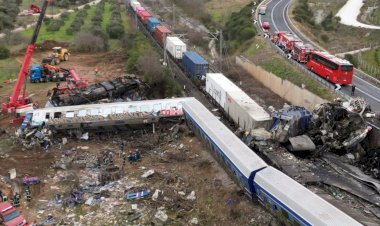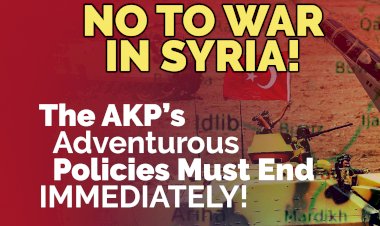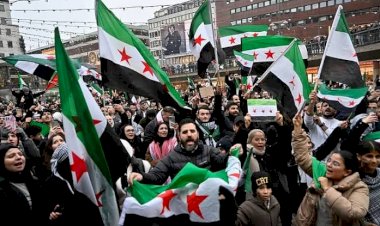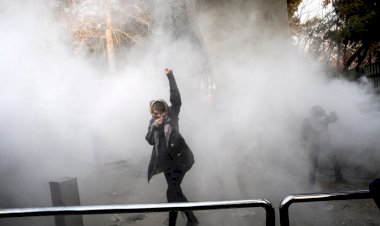A Debate on Entryism, Broad Party, and United Front Tactics
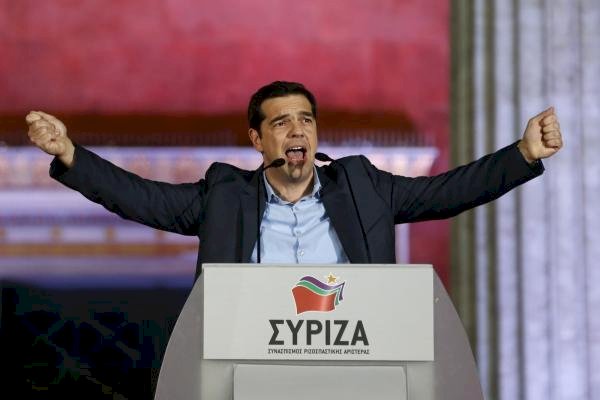
Mick Armstrong, one of the leaders of the Socialist Alternative, the most important revolutionary Marxist organization in Australia, the article titled "The Broad Party Question After Syriza"[1], published in the Marxist Left Review offers us the opportunity to express our views on the broad party, the united front and the tactics of entryism.
"Broad parties" have played important roles in many countries of the world, past and present, and in many respects remain a central debate for the socialist left. TİP (Workers Party of Turkey) is also such a party that proposes a broad party model in Turkey. This is exactly why these programmatic issues need to be elaborated.
Syriza in Greece, Podemos in Spain, Die Linke in Germany, Rifondazione in Italy, PT and PSOL in Brazil, DSA in the USA… How should the revolutionaries relate to these parties? Under what conditions can the entryism tactic be applied, or when and how should the united front tactic be followed?
A basic caveat about this:
"The existence of independent Communist Parties and their complete freedom of action in relation to the bourgeoisie and counter-revolutionary social democracy is the most important historical achievement of the proletariat and one which the Communists will in no circumstances renounce. Only the Communist Parties stand for the overall interests of the whole proletariat.
In the same way, the united front tactic has nothing to do with the so-called 'electoral combinations' of leaders in pursuit of one or another parliamentary aim.
The united front tactic is simply an initiative whereby the Communists propose to join with all workers belonging to other parties and groups and all unaligned workers in a common struggle to defend the immediate, basic interests of the working class against the bourgeoisie. Every action, for even the most trivial everyday demand, can lead to revolutionary awareness and revolutionary education; it is the experience of struggle that will convince workers of the inevitability of revolution and the historic importance of Communism." (Theses on Comintern Tactics)[2]
We can put forward some basic principles regarding the relations to be established with the reformist forces:
The revolutionaries must maintain their political and organizational independence, and the freedom of action and the right to criticize must never be given up. It is essential to base the workplace and street movement. One cannot rely on parliamentary follies and electoral arithmetic. No deals behind closed doors. The most general interests of the working class cannot be sacrificed for the sake of bureaucratic balances. And of course, tactics cannot turn into an end in themselves and can only be applied subject to the general strategy.
Although these basic principles constitute the general framework, there is no standard formula for the application of the united front or the entryism tactic. As Comrade Mick said:
"There is of course no formula for intervention in a broad party. Political circumstances vary significantly from country to country, and the exact tactics have to be concretely determined in each case. Myriad factors are involved, including the combativity of the working class, the degree of radicalism in society, the depth of the economic and broader social crisis, the size and weight of the revolutionary forces, the nature of the other forces you are working alongside, and so on. Nevertheless, with all these caveats there is much to learn from the DEA experience."
DEA (Internationalist Workers' Left) is a socialist organization where the Socialist Alternative has been related in Greece until recent years. DEA became the focus of the united front, entryism, and broad party discussions, firstly within Syriza and then within the more left-wing and nationalist LAE (Popular Unity-People's Union), which broke away from Syriza.
In his article, Comrade Mick describes the relationship of the DEA with Syriza and then with Popular Unity (LAE) as an exemplary initiative. I wish it was. Unfortunately, the experience of the DEA should be remembered mostly for its negative aspects in terms of revolutionary tactics.
Time seems to have falsified the DEA's policies. Because a few years after Mick's article, both the DEA and the LAE came to a political end, experiencing great divisions and loss of power. The reason for this rapid disintegration on the LAE front was that the LAE could not find a place for itself in bourgeois high politics after separation from Syriza. When the popularism on media and economic opportunities brought about by being a parliamentarian are lost, the conditions of existence of parties such as the LAE almost disappear. It was the same for the LAE. As for the DEA...
Subordinate to reformist bourgeois politicians like Tsipras and then Lafazanis, the DEA was bitterly affected by their right wing and defeat. DEA's submissiveness within the LAE, which has become more obscure, brought along the contradictions that accumulated within the DEA into a major crisis. The biggest problem was the loss of mana of the DEA as a revolutionary and internationalist party after so many opportunist policies. The major devastation for the DEA, which lost some of its important cadres to the reformist forces, was that the left-wing cadres left the organization with a large-scale split. The DEA made major mistakes by systematically adapting to bourgeois politicians in the guise of a united front tactic, and as a result, it had to suffer a heavy defeat.
Syriza, on the other hand, played a vital role in resolving the crisis in Greece in favor of the capitalists and imperialists, and in the historic defeat of the working class and the left, and became the new address of neoliberal social democracy in Greek politics.
Our criticisms and contributions to Comrade Mick's article are as follows:
1- "The abject capitulation of the Syriza leadership – without even an attempt to rally its working class supporters for a serious fight – resulted in an extremely dispiriting and disorienting defeat from which the whole movement against austerity in Greece is going to have to be rebuilt." Comrade Mick is undeniably right in conveying the objective situation in this way. Mick compares the scale of Tsipras' betrayal to the SPD's support for the First World War, which is impossible to disagree with. The point we disagree with begins with Comrade Mick expressing his criticisms through Tsipras or the "Syriza leadership". Mick's article makes an effort to distinguish between the Tsipras-Syriza leadership and Syriza. But how realistic is this separation? Tsipras wielded tremendous power as the powerful leader of the "host" wing and prime minister of the bourgeois state, which dominated Syriza by far. We should also remind you that Syriza's most important weapon, as a voting machine, was none other than Tsipras, its powerful leader and star. So, it wouldn't be right to put Syriza together as a separate phenomenon from Tsipras and the leadership.
2- Syriza, on the other hand, has never been a party with a vibrant worker or youth base. Therefore, it would not be correct to compare Syriza with the social democratic parties of the past, which had strong working-class ties. Syriza was a formation that tried to gain a place in high politics by winning deputies and other elected positions and did not have concrete ties with the masses and living organizations apart from its bureaucratic shell. Syriza's ties to the masses and actions have always been weak and relied mainly on Tsipras' media popularity with the electorate. Let alone the Communist Party of Greece-KKE, even ANTARSYA, the representative of the extreme left, was stronger than Syriza in terms of ties with the masses. Syriza's position in high politics was that of a more pro-EU electoral alternative to the left of PASOK, different from the nationalist KKE. Syriza, which does not have a horizon beyond the EU, eventually turned into the new PASOK (center left). As Comrade Mick pointed out, before Syriza came to power, it negotiated with the Greek and European bourgeoisie and gained their trust. Tsipras did not disappoint them.
3- So, what can revolutionary socialist organizations do within Syriza? This policy was a mistake for the DEA from the beginning because being in a highly bureaucratic structure integrated into the system without a real worker and youth base could only harm the class struggle. Revolutionaries can tactically join reformist parties for certain periods, or they can form a united front with reformist parties in line with concrete goals. But the first condition for this is that the party with which they are associated should have a worker and youth base. And of course, the revolutionaries should refer to the possibilities of the street and workplace-centered concrete class struggle in the unity to be established.
"The main aim of the united front tactic is to unify the working masses through agitation and organisation. The real success of the united front tactic depends on a movement "from below", from the rank-and-file of the working masses." (Theses on Comintern Tactics)[3]
On the other hand, new shoots will not sprout from a dry bureaucratic shell focused on high politics. To be included in such a shell would only benefit the bureaucratic apparatus. Because in this way, the conciliatory forces have the opportunity to give a more left-wing image than they are. Election-oriented reformist parties always want to put such a leftist image on their showcases to attract votes from workers and youth. Thus, illusions of the left among the masses are formed, but the unreliability in practice is destructive. The articulation of the "revolutionary" elements to the reformist unreliability causes a disintegration in the resistance of the working masses and arises a sense of helplessness in the masses. "What did the Greek government do is unfortunately was the only thing it could do." This idea, which some left intellectuals put forward to defend Tsipras during the Greek crisis, unfortunately, became the main idea among the masses and Tsipras managed to survive with the image of "he did the best he could" while betraying the workers. Syriza stands for Coalition of the Radical Left, the image of the radical left being subjugated by the working people. It has been a great facilitator in the implementation of betrayals. Small socialist components such as the DEA supported this image of Syriza. In such cases, small parties have a bigger impact than their size. For example, the DEA had such an effect when it called for a "left government" by making a "u-turn" against its principles.
Moreover, when the Syriza-ANEL coalition government was formed, in which many critical seats were left to the far-right ANEL, the DEA continued to be involved in Syriza. For organizations like the DEA, it is impossible to change Syriza's policies, because Tsipras is completely in control. A bureaucratic apparatus that lacks an active membership and organizational base does not have any conditions or instruments for penetrating its policies. Conversely, as in the case of the KOE (Greek Communist Organization), the Syriza leadership, as the dominant party, forced the small socialist structures to dissolve, and those that could not be forced were easily purged from the party.
4- It was also wrong for the DEA to join the LAE after Syriza. What would it mean to participate in the founding of a new reformist, bureaucratic, and nationalist party to return to "true Syriza traditions"? LAE wanted to be a partner in parliamentary balances around the policy of capitalist economic protectionism, including social democrats and even right-wing elements. The DEA unfortunately kept following this Syriza.
It is incomprehensible to lament that "If ANTARSYA had supported Popular Unity, the LAE would have passed the 3% election threshold". (LAE was just below the threshold with 2.85% of the votes in the September 2015 election, while the far-left ANTARSYA had received 0.85% of the vote) Had the election threshold been passed, around 8-9 reformist politicians, such as Lafazanis, who used to be in high politics including the ministerial seat, would have entered the parliament, but how could these names affect the class struggle? If ANTARSYA had entered the LAE, it would have committed political suicide in exchange for 1 or 2 deputies. The fact of the matter is that the LAE led by Lafazanis neither saw ANTARSYA nor its partners in Syriza saw the DEA as a considerable force and took it seriously.
Time has revealed many things. Unable to retain its parliamentary seats, as is typical in bourgeois parties, the LAE quickly fell into dissolution. With no ties to the working class and youth, and no organized base, the dissolution of the LAE is certainly not a surprise. In the 2019 elections, they were able to retain only 15 thousand of the 155 thousand votes they received in 2015 (0.28%). Today, LAE has no effect either in the field of class struggle or in high politics.
5- The Syriza government had brought small and weak Macedonia to its knees, continuing the sub-imperialist tradition of the Greek government, and changed the name of the state to "North Macedonia". The Greek right (and fascists) nonetheless opposed this and organized massive protests against Syriza. For them, Macedonia meant Greece. Macedonia could not use this Greek name. Here, just like the KKE, the LAE criticized Syriza from the right and adopted a friendly attitude towards the nationalist demonstrations. The "internationalist" DEA did not even react to this right-wing trend of the LAE. Their justification was the preservation of unity within the party. For politicians like Lafazanis, it is a shameful result of adaptation and an exemplary example of how the united front should not be formed. It should be noted that ANTARSYA has been the main force defending the internationalist position of the radical left about Macedonia.
6- It is no surprise that the DEA fell into crisis and split after its unprincipled tailism towards reformist parties. The DEA has misinterpreted the united front policy from the very beginning. There is no question of looking for shortcuts for revolutionaries or relying on money from the parliament. When it is parliamentary, high politics, and elections, the politicians like Tsipras and Lafazanis are the determinant forces.
But when it is the class struggle on the streets and in the workplaces, revolutionaries are the determinant power. That's why revolutionaries construct their united front tactics in the context of actual struggle through the street and strike movements. High political games, parliamentary balances, and election periods are the domain of reformist politicians and revolutionaries do not make their tactics based on these calculations. A united front that is not based on the dynamics of actual struggle arising from the streets and workplaces is unthinkable. In the realm of high politics, reformist leaders accept cooperation in exchange for surrender. Since neither Syriza nor the LAE is parties based on the class movement, or the street movement, and has such a base, what would it do to the DEA by subjecting to Syriza and the LAE? A few doors open to bourgeois politics! Much has been sacrificed for nothing. When the main focus was on elections and high politics, DEA left the fields and activities in which it was active in social struggles. It was a formless and indefinite entryism, sacrificing the political principles implemented by the DEA as so-called united front tactics. This bourgeois adaptation has led the DEA to sink.
7- ANTARSYA, the traditional organization of the extreme left, had an opportunity to rise as a revolutionary alternative to the left of Syriza. But ANTARSYA had to show a strong initiative both to discredit Syriza, which advocates that surrender to the capitalists is the only way, and to overcome the strong bureaucracy of the Greek Communist Party (KKE) that hinders the struggle. Unfortunately, ANTARSYA has been far from showing this initiative and has become one of the main culprits of the Greek tragedy. The main problem of ANTARSYA, which has considerable strength in the field of vanguard workers and students, the anti-fascist struggle, and solidarity with migrants, is that it cannot be a real front. The component organizations of ANTARSYA, who were completely incapable of organizing joint political activities, were far from performing such dynamism that led to workers and youth organizing campaigns during the Greek crisis.
The sectarianism between the rival groups (mainly NAR and SEK) made ANTARSYA paralyzed. ANTARSYA has been completely dysfunctional in making the necessary moves to impress the disillusioned masses of Syriza, which has ultimately shifted to the left. ANTARSYA could not keep its weight in the rising strike and protest movements, and could not take the leadership of the street. One of the consequences of this was that the right-wing (ARAN-ARAS) in ANTARSYA joined the reformist LAE and dissolved.
Since ANTARSYA could not be a real front of struggle, it just turned into an election bloc. However, ANTARSYA, who could not put class struggle at the center, remained in the shadow of the well-known reformist politicians of high politics. It was inevitable that ANTARSYA, which failed to participate effectively in the class struggle, would receive bad election results. The parties inside ANTARSYA were so sectarian that they became so extreme that they became rivals (in some localities) in the next elections. SEK, the sister organization of the British SWP, is one step ahead of everyone on the issue of sectarianism.
[1] Mick Armstrong, The broad left party question after Syriza, https://marxistleftreview.org/articles/the-broad-left-party-question-after-syriza/
[2] Theses on Comintern Tactics,
https://www.marxists.org/history/international/comintern/4th-congress/tactics.html
[3] Theses on Comintern Tactics,
https://www.marxists.org/history/international/comintern/4th-congress/tactics.html



